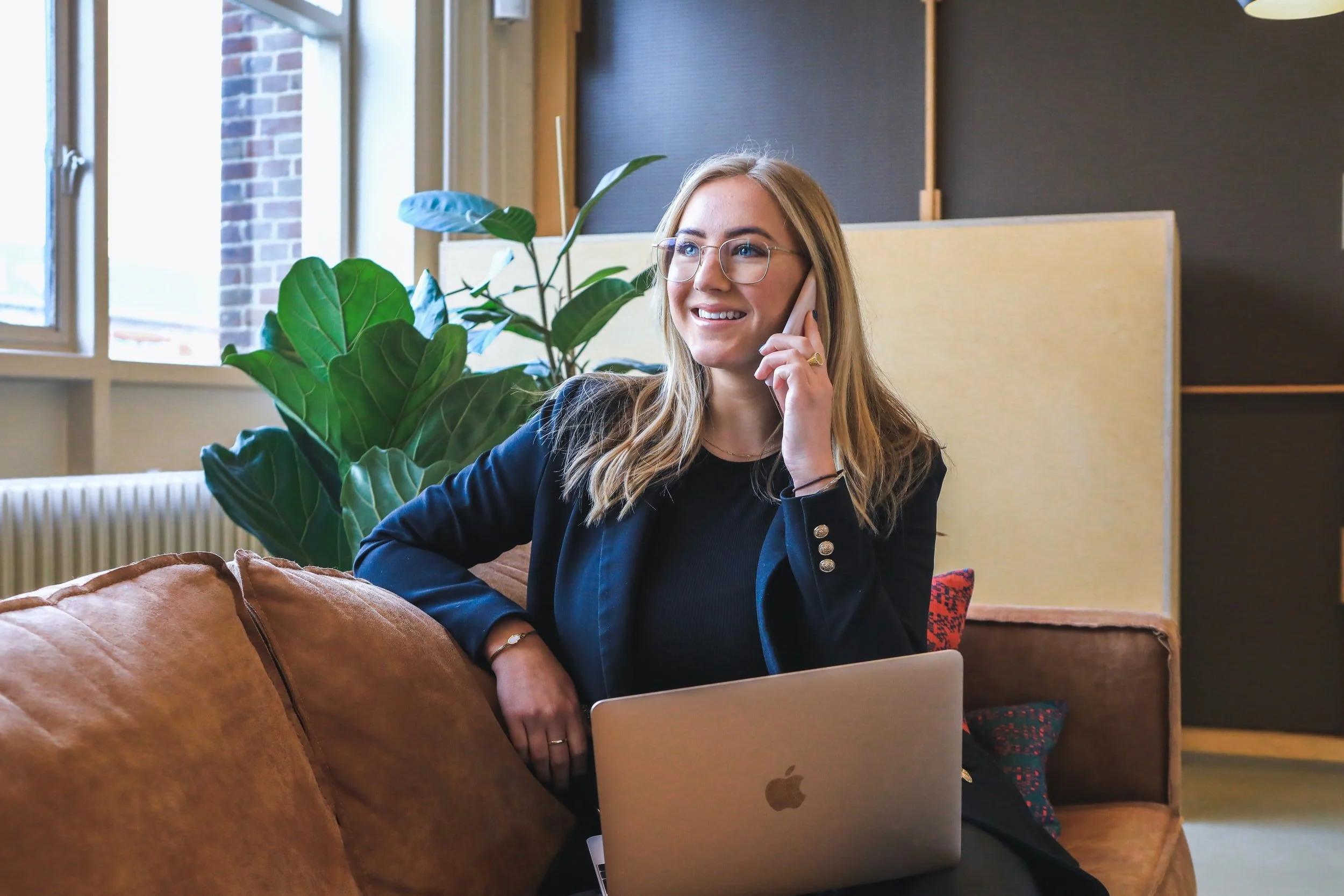You take a seat in the therapy office—or log on to your video conferencing platform at the appointed time—to meet your child’s new potential therapist. Maybe this isn’t your first rodeo seeking therapy your child, and you’re wondering if this counselor will have the help you need. Or, maybe it is your first visit, and you’re feeling a little overwhelmed about where to start. Either way, finding a counselor for your child is a big step, and you probably have a lot of questions to ask.
It’s really important to find a therapist who is the right fit for your child. All of us—whether we’re 9 or 99—will heal the best when we’re working with a counselor we like and trust. You don’t always have to see eye to eye, but you do need to feel safe talking to them. It also helps to find someone who truly specializes in the problems bringing you to therapy. So, how do you figure out if you’ve found a good fit? Let’s go over X questions you can bring up in your initial visit with a new therapist to learn more about what to expect.
Therapists Want Your Child to Find The Right Fit—Even if It’s With Someone Else
Sometimes, your first talk or visit with a child therapist might feel a little like a job interview. And it kind of is! You’re getting to know the therapist and how they work, and the therapist is getting to know you and your needs. It might feel awkward to ask questions about your therapist’s expertise or approach: what if you decide afterward that you need to see someone else?
Please know that we want to find the right therapist for your child almost as much as you do. We aren’t going to take it personally if you ask a hard question, or decide need to move in a different direction to find your child help. It feels amazing to be able to find someone the exact kind of help they need, even if that means they need to go elsewhere. I think I speak for most therapists when I say that working with a child I’m not equipped to help is a bummer. I don’t want that for me, and I don’t want that for you!
So, go right ahead and ask the questions you need to ask. You can even ask us to recommend other therapists to you. It’s not a weird request, and most therapists will be happy to oblige.
How Do You Interview a Child Psychologist, Counselor, or Therapist?
Reach out to the therapists who interest you, and see what their protocol is. Some may be happy to offer a consultation with you over the phone, while others may invite you into the office for a full intake session. Some therapists may charge for this service, while others don’t. Whether by phone or in person, it’s helpful to have a fairly in-depth conversation with a new therapist before your child’s first session.
While doing your research, you’ll probably find therapists with all sorts of titles beside their names, including psychologists, counselors, and psychiatrists. You might also see people who specialize in particular types of therapy, like play therapists or drama therapists. You can read more about the differences between types of therapists here to see who might be the best fit for your family. You can also check out my blogs on play therapy and drama therapy to learn more about how those approaches help kids.
If possible, set up appointments to talk to at least a couple different therapists. It’s okay to shop around a little bit before making a commitment to begin therapy. Even the most amazing therapist isn’t going to be the right fit for every child or family. Interviewing multiple people makes it more likely you’ll click with someone.
5 Questions to Ask Your Child’s Therapist
Okay, so you’ve done your research, found a few contenders, and set up some times to interview possible therapists for your child. What do you ask once you get to the appointment? I’m going to share 5 questions I think are pretty universal and would benefit any family that’s considering starting therapy. If you’ve never been in counseling before, these may not have occurred to you to ask. Hopefully they’ll be helpful to you!
Of course, every child’s situation is different and you may have more specific questions you need to ask in order to find the best fit. These questions should provide a good jumping-off point for more detailed conversations about your child, family, and needs.
Question 1: How Much Experience Do You Have Working with Children Like Mine?
No matter how skilled a therapist is, it’s impossible to be an expert in everything. You are likely to have the best experience working with a therapist who has helped children navigate similar issues. They’ll already know the ropes, and have an idea of what approaches will help.
You might want to know if your therapist has in-depth training or experience working with a specific diagnosis, like ADHD or OCD. Or, it might be helpful to hear if they specialize in helping children through certain issues, like divorce or grief. Sometimes, it can be helpful to find a therapist who shares or is very knowledgeable about your cultural, racial, or religious background.
Working with children is also very different than working with adults. Just because a therapist specializes in helping adults or teens with anxiety, for example, doesn’t mean they’ll automatically know how to adapt skills to work for kids. Ideally, you want to find a therapist who specializes not just in children, but in kids in your child’s specific age group. After all, a preschooler learns, thinks, and communicates really differently than a tween!
Question 2: How Will I Be Involved In My Child’s Therapy?
Depending on the circumstances, you may hear a lot or a little about what goes on in your child’s therapy sessions. Your child’s age, their specific concerns, and your therapist’s style will have a lot to do with what is shared and what isn’t. However, what you’re told about your child’s therapy should probably be more than nothing, and less than everything.
Ask your potential therapist if they plan to meet with your child alone, or if they’d prefer to have everyone meet together. There’s no wrong answer, but it helps to know what to expect. You should also know how you’ll be kept in the loop about how therapy is going. Some therapists may send home weekly reports, while others will schedule periodic parent sessions to talk about progress and goals.
In general, the younger your child is, the more involved you need to be in their therapy in order to see good results. Young children need their parents help to regulate their feelings, so coping skills only work if you’re there to help. On the other hand, all kids need some element of privacy in order to feel comfortable sharing in therapy. The older your child is, the more personal space they are likely to need.
No matter your child’s age, you should expect to have some information about how therapy is going, what your goals are, and what you can be doing to help. Also, you can always expect to be told if your therapist suspects that your child could be in a dangerous situation or is at risk of hurting themselves or others.
Question 3: What Are Your Fees? How Do You Handle Payment and Cancellations?
It stinks to get all the way through an interview with a new therapist, only to discover you can’t make things work financially. Hopefully, you were able to get a sense of your therapist’s fees from their website before meeting. If you aren’t clear or the information wasn’t listed, please ask! Money conversations might feel a little bit awkward, it’s so important to know up-front what you are committing to.
Therapy sessions in private practice work differently than many other medical appointments. Your therapist may or may not take insurance. If they do, your copay might be different than it is for other types of medical care. If they don’t take insurance, you may still be able to get insurance to reimburse you for some of the cost, but it may be your responsibility to contact your insurance provider. It’s likely you’ll need to be prepared to pay the full fee for your session on the day of your visit.
Also, it’s good to know that many therapists have policies about when and how clients can cancel appointments. This is excellent to talk about in advance, so you can plan ahead and not end up with a charge later that you hadn’t expected. It’s common for therapists to request either 24 or 48 hours’ notice when someone needs to cancel a session for a non-urgent reason.
You can break this big question about fees down into some smaller ones to get a detailed idea of the financial investment you’ll be making if you continue therapy:
How much is your fee per session?
Do you charge a different amount for intake or initial sessions?
What insurances do you take, if any?
What is your cancellation policy?
How do I pay for sessions: by cash, check, card, or another way?
Question 4: Can You Estimate How Long It Takes Children to Complete Therapy?
Therapy isn’t just a financial commitment, it’s a time commitment, too. It helps if you have a ballpark idea of what to expect before you get started. That “ballpark” might still be a pretty broad estimate—it can be really hard to predict how quickly a child will move through therapy. Many things—your child’s age, the reason they’re coming to therapy, any trauma history they may have—can influence how much time they will need.
Still, your counselor should be able to talk with you about whether the type of therapy they practice is short, medium, or long-term work. There are some forms of therapy that are designed to be extremely brief, so children might complete the whole sequence in 8 to 12 sessions. That still may feel longer than what you might expect from brief therapy! Therapists who do deep trauma work or use a psychodynamic therapy approach may see clients for many months or years. Many therapy styles fall somewhere in between.
Question 5: Is There Anything I Can Do at Home to Support My Child’s Progress?
I love being asked this question, because the answer is almost always yes! You and your child’s therapist will be partners in their care. Your therapist only sees your child an hour a week, while you are with them day in and day out. Your therapist may have a broad knowledge from having worked with many children your child’s age, but nobody has a deeper knowledge of your child as an individual than you. Therapy just works better when parents are following up at home.
Your therapist may have book recommendations for you and your child, or ideas for coping skills the two of you can try together. If you continue working together, they may be able to help you figure out ways to tweak how you’re handling situations at home to help your child better manage their feelings. Asking this question during your first interview helps you get a better idea of the therapist’s style, and the sort of “homework” you may be asked to do down the road.
Begin Child Therapy in New York, North Carolina, or Florida
If you’re looking for a children’s therapist and you’re in one of these three states—New York, North Carolina, or Florida—I may be able to help! I specialize in helping anxious tweens overcome worries and cope with strong feelings using a combination of play therapy and CBT. Children are welcome to visit my Davidson, North Carolina therapy office for in-person counseling, or meet me online for virtual therapy.
I also have some mental health resources that are available to all families, regardless of location. My coping skills course, Worry-Free Tweens, helps kids and parents learn new strategies they can use at home to combat anxiety. It’s a great first step to take while you’re looking for a therapist. My book, A Parent’s Guide to Childhood Grief, helps children and caregivers reconnect and talk about their loss through play-based activities.
Now that you have your first 5 questions prepared, you’re ready to go forth and interview some therapists. I’m wishing you the best of luck on your search!




